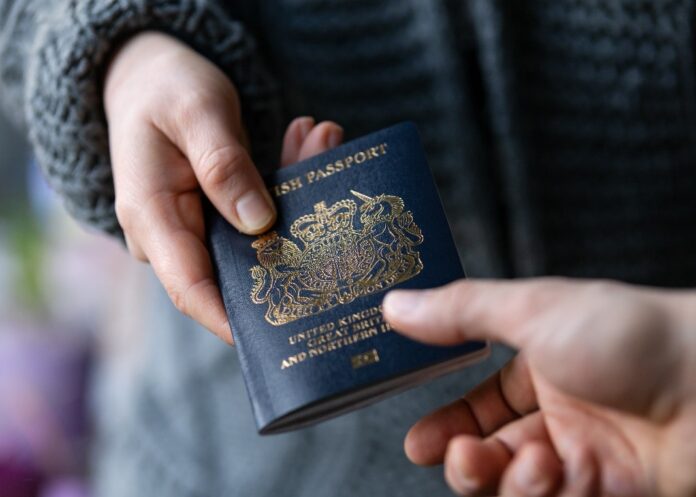Travel expert reveals top tips to ensure your passport isn’t rejected at the airport
Thousands of travellers face issues at airports each year due to damaged passports, which can lead to disrupted plans and financial losses. Earlier this year, former Geordie Shore star Vicky Pattison was denied boarding a flight from Newcastle to Italy to view a wedding venue after her dog had chewed her passport, illustrating that even minor damage can sometimes cause major travel headaches.
“A passport is your gateway to the world, and even a little damage can result in complications at airport check-in desks,” warns Gavin Lapidus, Director of eShores, a team of leading travel consultants that plan bespoke holidays. “Most passports last ten years, during which they can expect some wear and tear. When travelling, your passport is checked for damage, tampering, and validity, with damaged documents facing rejection, putting an end to your holiday.”
If authorities are concerned about the validity of your passport, you may even be held at the airport for further questioning, even if you’ve already landed at your destination. While minor scuffs and bent pages are generally acceptable, Lapidus recommends replacing your passport if there is any significant damage.
To ensure a hassle-free travel experience, eShores offers the following tips for assessing passport damage:
1. Watch out for the fun souvenir that could end your trip
Look out for novelty stamps; whilst fun, they may impact your travel. Many tourist destinations and famous landmarks sell unofficial or novelty passport stamps. However, if you place these on or inside your passport, it could lead to it being rejected as they’re not officially recognised and may be considered alteration or defacement.
2. Water-damaged passport? Wave goodbye to your travel plans
Passports with significant water damage are often deemed invalid for travel, especially if information is obscured or the laminate has started to lift, which can cause concern that a photograph can be changed.
It’s not just water you need to be cautious of; the HM Passport Office says they consider passports with “stains on the pages (for example, ink)” damaged and warn you that you may not be able to travel with one.
3. Rips, tears and holes – the often-overlooked passport dealbreakers
A common misconception is that as long as all the information on your passport is present, visible and legible, it is acceptable for travel. However, this isn’t always the case. Lifted laminate on the personal details page can cause rejections, even if the photograph and information can be easily viewed, as can torn or defaced pages.
Holes and cuts are usually used to cancel old passports, so they’re unacceptable in a current passport. Keep in mind that if the chip on the passport can be seen from the back cover, this can also lead to rejection.
4. Don’t chance it: A previous pass doesn’t guarantee entry
Many travellers believe that if their damaged passport has been accepted before, it will continue to be suitable for travel. However, certain countries and airports may have stricter regulations for the condition of your passport. Bali, Vietnam, Qatar, Australia and the United States are all examples of locations with stringent rules when it comes to damaged passports.
However, a damaged passport can be rejected at any time and any place, so it’s crucial to ensure your passport is in pristine condition no matter where you’re travelling.
5. A loose cover can lead to rejection
Loose or detached passport covers or bindings are a common reason for refusal, even if the inside of your passport is in pristine condition. When getting a new passport, it’s sensible to protect it with an external passport cover to limit the chance of damage to the cover or pages from rips, wear and tear, stains or other types of damage.
When considering replacing a damaged passport, it’s usually better to be safe than sorry. “If you’re concerned about passport damage, that’s usually a clear indication you may experience issues at the airport check-in,” Lapidus emphasises. “For peace of mind, you can contact the embassy for the country you’re visiting for clarity on what is acceptable damage.
If you’re still worried, organise a replacement passport to ensure your holiday doesn’t come to a sudden, unexpected end before it’s even begun.”
For more information on eShores, and how they can help you plan and book your dream holiday, visit https://www.eshores.co.uk/
Help keep news FREE for our readers
Supporting your local community newspaper/online news outlet is crucial now more than ever. If you believe in independent journalism, then consider making a valuable contribution by making a one-time or monthly donation. We operate in rural areas where providing unbiased news can be challenging. Read More About Supporting The West Wales Chronicle























